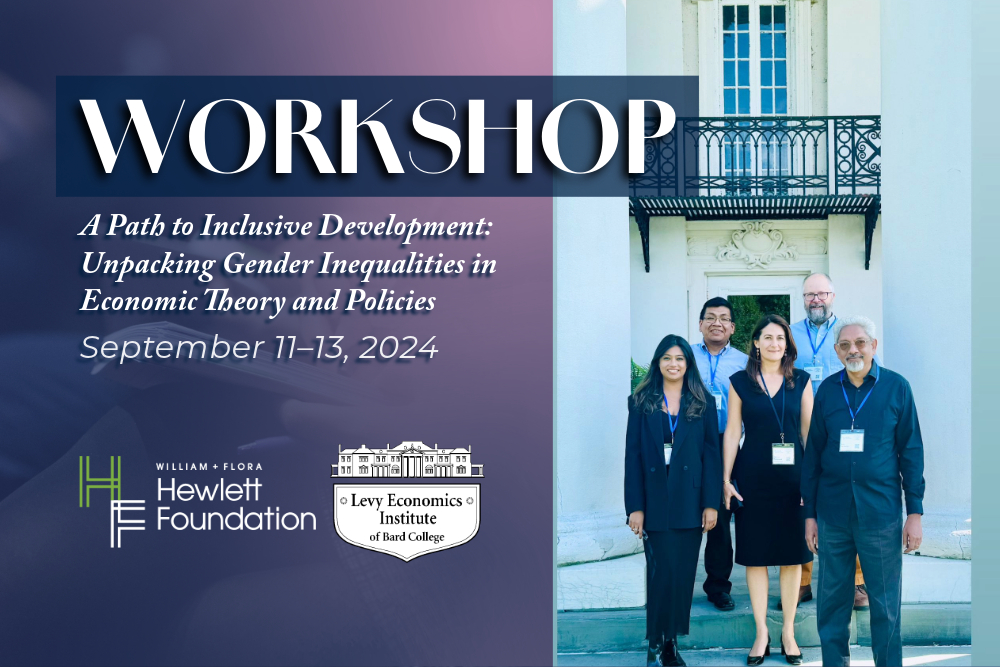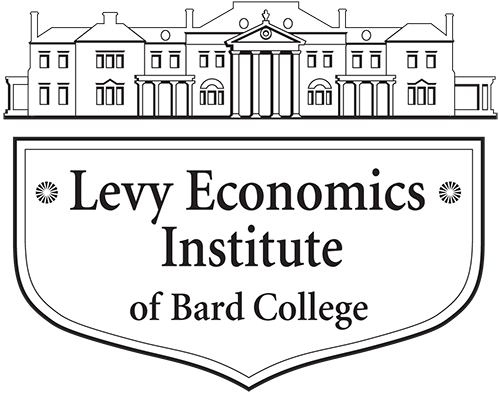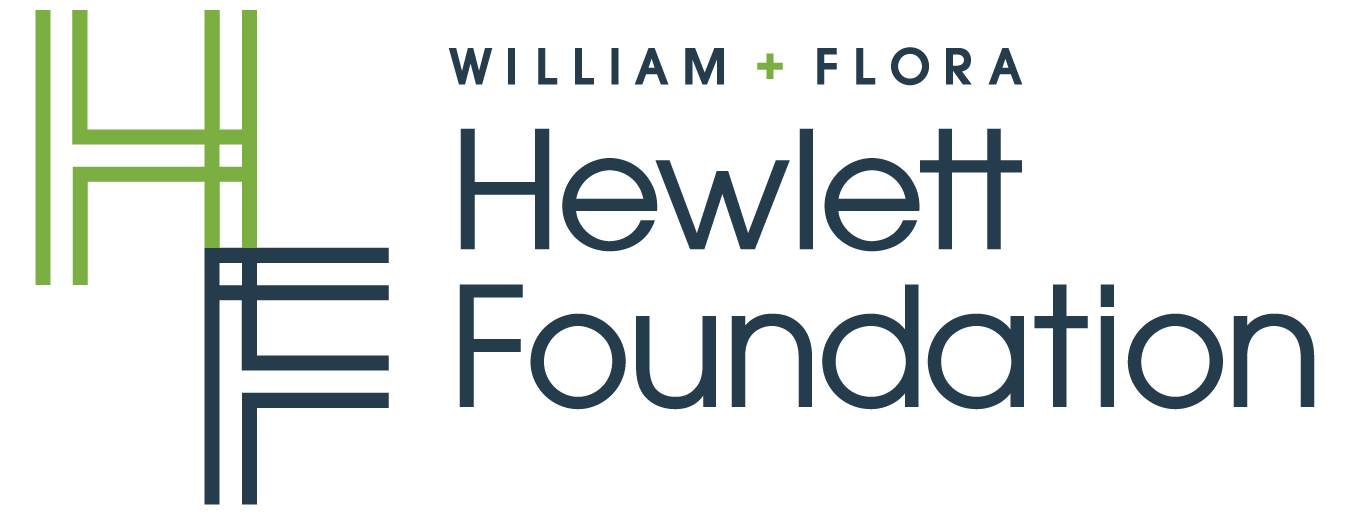A Path to Inclusive Development: Unpacking Gender Inequalities in Economic Theory and Policies
This event has ended.
When
September 11, 2024 - 12:00amto
September 13, 2024 - 11:59pm
Where
Levy Economic Institute of Bard College

A workshop organized by the Levy Economics Institute of Bard College with the generous support of The William and Flora Hewlett Foundation.
The workshop is organized in loving memory of Professor Nilüfer Çağatay (1955-2022). Professor Çağatay was a distinguished Professor of Economics at the University of Utah and a Research Associate with the Levy Economics Institute. She was a pioneer in gender-aware macroeconomics and co-founded GEM-IWG, an international network dedicated to knowledge sharing and capacity building among feminist macroeconomists. Inspired by her outstanding contributions to the field of gender and economics, we dedicate this gender workshop to her.
REGISTER NOW TO VIEW THE LIVESTREAM ON ZOOM
September 11th–13th, 2024
Blithewood, Annandale-on-Hudson, NY
The goal of this workshop is to explore ways to advance the integration of gender into economic analyses in order to promote inclusive development and policymaking. This workshop will provide a forum for scholars, academics, and policymakers to debate, discuss, and integrate the role of gender inequality in evaluating labor market dynamics, macroeconomic outcomes, and economic policies, with an overarching objective of discussing the methodological pluralism of feminist economics. There are multiple dimensions of gender inequality that intersect with other forms of inequality—such as social class, ethnicity, race, and nationality—to affect economic processes, outcomes, and policies. We are seeking contributions with strong theoretical, modeling, and/or empirical components to address these interconnections and we welcome research that applies a feminist lens to a broad range of topics in micro- and macroeconomics, cutting across local and global geographies. We invite research papers engaging but not limited to the following topics:
- Care work, social reproduction, and macroeconomics
- Investigation into aspects of gender inequalities and time allocation: integrating time-use analysis in assessing overall economic wellbeing
- Expansion and improvement of data for empirical, evidence-based gender analysis
- Examination of the bi-directional channels of influence between macroeconomic policies and gender inequalities
- Fiscal policy, taxation, and gender budgeting in low- and middle-income countries: challenges and the way forward
- Gendered impact of austerity measures
- Investigation into the gender-differentiated impacts of monetary policy
- Explorations into the mechanisms whereby gender inequalities influence macroeconomic outcomes, such as aggregate output and employment and their sectoral composition, inflation, budget deficits, and the current account balance
- Inquiry into climate change, environmental issues, and sustainability through a gendered lens
- Assessment of intra-household power dynamics, gender norms, and patriarchy in understanding economic outcomes including women’s unpaid work, labor market engagement, earnings, and the gender wage gap
- Development of new indicators of societal norms and perceptions (e.g., patriarchy, gender bias, etc.)
This workshop will bring together diverse visions of how and why gender and intersectional inequalities need to be integrated in assessing economic wellbeing and formulating development policy agendas. The workshop will facilitate deliberations on alternative theoretical frameworks and empirical evidence regarding strategies explored by feminist economists.
We invite theoretical contributions that utilize existing and novel economic modeling approaches, as well as empirical studies, in particular, those focusing on the dimensions of gender inequalities relevant to low- and middle-income countries. We encourage interdisciplinary research, submissions from young scholars and scholars from the global south. We are also interested in papers that provide a comprehensive picture of state of the art, identify gaps, and indicate directions for future research. The Levy Economics Institute of Bard College is organizing this event with the generous support of The William and Flora Hewlett Foundation. The organizers will cover accommodation and travel expenses.
For questions, please contact Aashima Sinha at [email protected].
SCHEDULE
| Wednesday, September 11 | ||
| 9:00–9:10 a.m. | Welcome | |
| Pavlina R. Tcherneva, President, Levy Economics Institute | ||
| 9:10–9:20 a.m. | Dedication: Nilüfer Çağatay | |
| Rania Antonopoulos, Levy Economics Institute (remote) | ||
| 9:20–10:50 a.m. | SESSION 1: Gender and Macroeconomics: Modeling and Macro-Micro Linkages | |
| Chair: Marcella Corsi, Sapienza University of Rome | ||
| Presenters: | ||
| Ajit Zacharias (presenter), Levy Economics Institute; Gennaro Zezza, Levy Economics Institute; and Thomas Masterson, Levy Economics Institute
|
||
Mark Setterfield, New School for Social Research
|
||
| Discussants: Mark Setterfield, New School For Social Research Valeria Esquivel, International Labour Organization |
||
| 10:50–11:15 a.m | Coffee/Tea Break | |
| 11:15 a.m.–12:45 p.m. | SESSION 2: Income and Time Poverty: Gender- and Care-Sensitive Metrics/Assessment | |
| Chair: Ipek Ilkkaracan, Istanbul Technical University (ITU) | ||
| Presenters: | ||
| Thomas Masterson (presenter), Levy Economics Institute; Ajit Zacharias, Levy Economics Institute, Fernando Rios-Avila, Levy Economics Institute; and Aashima Sinha, Levy Economics Institute
|
||
| Aashima Sinha (presenter), Levy Economics Institute; Thomas Masterson, Levy Economics Institute; Ajit Zacharias, Levy Economics Institute; Fernando Rios-Avila, Levy Economics Institute
|
||
| Claudia Liceth Fajardo Hoyos (presenter), Universidad del Cauca, Colombia and Jhon James Mora Rodríguez, Universidad I CESI, Colombia
|
||
| Discussants: Claudia Liceth Fajardo Hoyos, Universidad del Cauca Oriel Sullivan, University College London (UCL) Fernando Rios-Avila, Levy Economics Institute |
||
| 12:45–2:00 p.m. | Lunch | |
| 2:00–3:30 p.m. | SESSION 3: Gender (In)sensitive Data and Theory | |
| Chair: Aashima Sinha, Levy Economics Institute | ||
| Presenters: | ||
Indira Hirway, Centre for Development Alternatives, Ahmedabad, India
|
||
| Oriel Sullivan (presenter), University College London (UCL); Jonathan Gershuny, University College London (UCL) and Juana Lamote de Grignon Perez, University College London (UCL)
example of child care” |
||
Marlene Kim, University of Massachusetts Boston
|
||
| Discussants: Luiza Nassif Pires, Universidade estadual de Campinas (Unicamp) Indira Hirway, Centre for Development Alternatives, Ahmedabad, India Ipek Ilkkaracan, Istanbul Technical University (ITU) |
||
| 3:30–4:00 p.m. | Coffee/Tea Break | |
| 4:00 p.m.–5:30 p.m. | SESSION 4: Policy and Gender: Fiscal, Monetary, and Education | |
| Chair: Ajit Zacharias, Levy Economics Institute | ||
| Presenters: | ||
Thi Minh Tam Bui, Srinakharinwirot University, Thailand
of formal/informal employment and sectoral heterogeneity through a gender lens” |
||
Ruth Badru, University of Bristol, UK
|
||
| Gustavo Canavire-Bacarreza, World Bank and Universidad Privada Boliviana and Gunnar Poppe Yanez (presenter), Johns Hopkins University
|
||
| Discussants: Pavlina Tcherneva, Levy Economics Institute Thi Minh Tam Bui, Srinakharinwirot University, Thailand Emily Ikhide, National Institute for Legislative and Democratic Studies |
||
| Thursday, September 12 | ||
| 9:00–10:30 a.m. | SESSION 5: Policy Simulations: Input-Output and Computable General Equilibrium models | |
| Chair: Thomas Masterson, Levy Economics Institute | ||
| Presenters: | ||
Asiya Maskaeva, The University of Dodoma (Tanzania) (remote)
empowerment in Tanzania” |
||
Luiza Nassif Pires, Universidade estadual de Campinas (Unicamp)
|
||
| Oluwasola Emmanuel Omoju, National Institute for Legislative and Democratic Studies and Emily Ikhide (presenter), National Institute for Legislative and Democratic Studies
macro‐micro modeling of the ‘sugar’ tax in Nigeria” |
||
| Discussants: Emel Memis, Ankara University Mina Baliamoune-Lutz, University of North Florida Asiya Maskaeva, The University of Dodoma (Tanzania) (remote) |
||
| 10:30–11:00 a.m. | Coffee/Tea Break | |
| 11:00 a.m.–12:30 p.m. | SESSION 6: Gender Gaps in Wages, Productivity and Employment | |
| Chair: Luiza Nassif Pires, Universidade estadual de Campinas (Unicamp) | ||
| Presenters: | ||
| Abou Kane (presenter), University Cheikh Anta Diop of Dakar and Mamaye Thiongane, University Cheikh Anta Diop of Dakar
|
||
A. Haroon Akram-Lodhi, Trent University
reproduction in Malawi” |
||
Mina Baliamoune-Lutz, University of North Florida
do to reduce the gender gap in the labor market?” |
||
| Discussants: Jacqueline Strenio, Norwich University Thomas Masterson, Levy Economics Institute Nthabiseng Moleko, Stellenbosch University |
||
| 12:30–2:00 p.m. | Lunch | |
| 2:00–3:30 p.m. | SESSION 7: Care Policies, Child Development and Well-being | |
| Chair: Nthabiseng Moleko, Stellenbosch University | ||
| Presenters: | ||
| Myagmarsuren Boldbaatar, National University of Mongolia; Otgontugs Banzragch (presenter), National University of Mongoli; Khishigt Dandarchuluun, National University of Mongolia
|
||
Ebru Kongar (presenter), Dickinson College, and Günseli Berik, University of Utah
|
||
Emel Memis (presenter), Ankara University and Ozge Izdes, Istanbul University
|
||
| Discussants: Abou Kane, University Cheikh Anta Diop of Dakar Mary Borrowman, Center for Global Development Ana Maria Tribin, The World Bank |
||
| 3:30–4:00 p.m. | Coffee/Tea break | |
| 4:00–5:30 p.m. | SESSION 8: Patriarchy, Social Norms, and Gender Inequality | |
| Chair: Nurgul Ukueva, Bard College | ||
| Presenters: | ||
| Erica Aloè, Sapienza University of Rome; Marcella Corsi (presenter), Sapienza University of Rome and Giulia Zacchia, Sapienza University of Rome
|
||
| Amit Basole, Azim Premji University, Bengaluruand; MK Shravan, Azim Premji University, Bengaluruand; and Vijayamba. R. (presenter), National Law School of India
|
||
| Sarah F. Small (presenter), Department of Economics, University of Utah and Bhavya Sinha, Colorado State University
|
||
| Discussants: A. Haroon Akram-Lodhi, Trent University Vedavati Patwardhan, University of California, San Diego Vijayamba. R, National Law School of India University |
||
| Friday, September 13 | ||
| 9:45 –11:15 a.m. | Policy Round Table | |
| Chair: Anuradha Seth, (former) UN Women | ||
| Presenters: | ||
Panelists:
|
||
| 11:15–11:45 a.m. | Coffee break | |
| 11:45 a.m.–12:30 p.m. | Keynote, Jayati Ghosh, University of Massachusetts, Amherst | |
| 12:30–2:00 p.m. | Lunch | |
| 2:00–3:30 p.m. | SESSION 9: Gendered Disparities in Employment Security and Old-age Security & Intersection of Gender, work status and Political Ideology |
|
| Chair: Emel Memis, Ankara University | ||
| Presenters: | ||
| Beth Almeida, Center for American Progress and Christian Weller (presenter), University of Massachusetts Boston
|
||
Abena Odura, University of Ghana; Nthabiseng Moleko (presenter), Stellenbosch University; and Aashima Sinha, Levy Economics Institute
|
||
| Ipek Ilkkaracan (presenter), Istanbul Technical University (ITU) and Izaskun Zuazu, University of Duisberg-Essen
|
||
| Discussants: Giulia Zacchia, Sapienza University of Rome Ruth Badru, University of Bristol, UK Sarah F. Small, Department of Economics, University of Utah |
||
| 3:30–4:00 p.m. | Coffee/Tea Break | |
| 4:00–5:30 p.m. | SESSION 10: Sustainability, Climate Change, and Gender | |
| Chair: Sarah F. Small, Department of Economics, University of Utah | ||
| Presenters: | ||
Jheelum Sarkar, American University
|
||
Hossein Azadi (presenter), University of Liège, Belgium and Imaneh Goli, University of Liège, Belgium
|
||
Sophia Huyer, Accelerating Impacts of CGIAR Climate Research for Africa (remote)
|
||
| Discussants: Sophia Huyer, Accelerating Impacts of CGIAR Climate Research for Africa (remote) Jheelum Sarkar, American University Hossein Azadi, University of Liège, Belgium |

